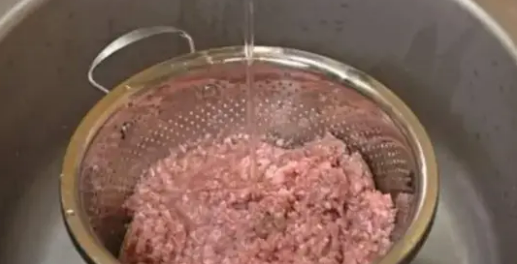When it comes to cooking with ground beef, a lingering question often arises in the kitchen: should you rinse it before or after cooking? This debate has sparked a divide among home cooks, with some swearing by the practice and others vehemently opposing it.
On one hand, proponents of rinsing argue that it helps reduce the fat content of the meat. For those watching their calorie intake or preferring a less greasy dish, this seems like an attractive option. Rinsing ground beef under cold water appears to be a simple solution to remove excess fat.

However, opponents of rinsing counter that it strips away more than just fat. They claim that rinsing also washes away flavor and moisture, leaving the meat dry and bland. This school of thought prioritizes retaining the natural juices and flavors of the meat.
Beyond the culinary considerations, rinsing ground beef also poses practical concerns. The process can create a messy splash of grease and water, making cleanup more troublesome. Moreover, pouring hot fat down the drain can lead to clogged pipes and costly plumbing repairs.
A more efficient approach is to let the fat cool and solidify before scraping it into the trash. This method avoids the mess and potential plumbing issues.
Ultimately, whether to rinse ground beef is a personal decision that depends on individual preferences. Weigh the pros and cons: do you prioritize reduced fat content or rich flavor? The next time you cook with ground beef, choose the approach that suits your taste buds best.
By considering the advantages and disadvantages of rinsing, you can make an informed decision that enhances your cooking experience. So go ahead, fire up the stove, and enjoy your perfectly cooked ground beef – rinsed or not!


